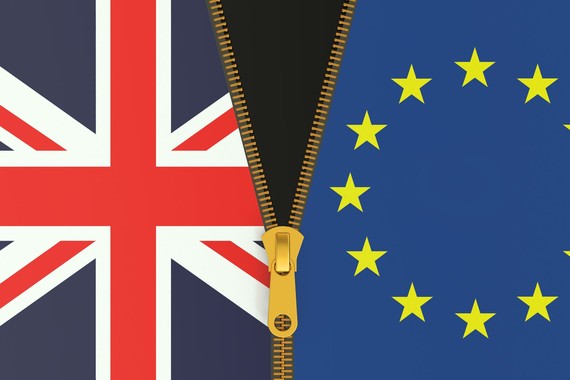By Peter Michel, Harvard Business School Class of 2017 & Harbus Contributing Writer
This Thursday (June 23rd), the British people will vote in a historic national referendum and will answer the following question; "Should the United Kingdom remain a member of the European Union or leave?"
Over the recent weeks, hype for the referendum has crescendoed, and the vote is now seen to have more significance and a higher turnout than any recent UK General Election. Whilst a seemingly straightforward question, if the British people vote to exit the EU (dubbed "Brexit"), historians and politicians alike will reflect on this pivotal moment in the economics and geopolitics of both the UK and EU for decades to come.
The political campaigning to date has been atrocious. The "Remain" campaign (led by David Cameron, and supported by most major political parties, international bodies and businesses), has focused on scaremongering, by continuing to articulate the exaggerated dooms-day scenario of a Brexit (dubbed "Project Fear"). Conversely, the "Leave" campaign (led by Boris Johnson, and supported by some Conservatives and UKIP), has stooped to sickening lows with its depiction of immigrants as the source of all Britain's problems. Leave has also intentionally misled the public about the costs of EU membership. With only days to go, the outcome is highly uncertain - bookies continue to give Remain the edge, but polls now favor Leave.
The Remain camp have decisively won the economic argument. Nine out of ten British economists, as well as the IMF and OECD, think a Brexit would be economically damaging. Moreover, recent GBP lows and combined with the £100 billion knocked off the FTSE 100 in a matter of days have all but validated the post Brexit recession argument. Nevertheless, Remain continue to lose ground as multitudes of Britons attribute low value to economics. What resonates with them is a far more emotive, social and inherently nationalistic argument. In their view, the EU has encroached on national sovereignty, damaged traditional British industries and worst of all, accelerated UK immigration, eroding the English identity. Demographic studies show that the elderly, lower educated and working class are more disposed to support Brexit because they do not consider themselves European. These increasingly insular little Englanders have been most disenfranchised by the EU and may prove a silent majority as they yearn for the old days of British society.
The economic and social debate will continue to intensify into the 11th hour, but realistically, it is uncertain how this unprecedented exit will impact the UK. In our globalized 21st century marked by the increased mobility of goods and people, it is fair to assume that a Brexit will neither stem long-term economic growth, nor solve the inherent challenges of increasing immigration. In my opinion, what is vastly more compelling is the geopolitical lens: the geopolitical fallout and impact on Britain's long-term legacy and role.
In 1950, a parliamentary candidate named Margaret Thatcher (aged just 24) made a big promise. She complained the UK had become weak and too hesitant to exercise its international might. She stated, it was "time to make Great Britain Great Again."
I'd like to pose the following question: 66 years later, is Great Britain still Great?
The UK, a spirited nation that until 1997 ruled an empire, has unquestionably had a precipitous decline geopolitically. While the UK retains a seat at the top table (G7, UN Security Council, NATO), it punches above its weight with a bigger voice and role than its global position merits. The fact is, Britain is a small island on the fringe of Europe with limited natural resources, the world's 6th largest economy and 9th strongest military.
In 2001, Tony Blair stated "if [Britain is] no longer a super-power, then [it is] at least a force for good in the world". If that is still the case, then why did the UK shy away from debt issues with Greece, avoid substantive intervention with ISIS in Syria and leave Ukraine negotiations with Putin to Germany? The answer it seems is the increasingly parochial nature of the British people - foreign policy barely surfaced during the 2015 General Election agenda. If the UK doesn't play its part, it will lose its entire geopolitical pull. So I ask, at what point will its legacy no longer warrant its international stature?
If Britain's relevance dictates that Britain retains its seat at the table, then let us consider a Brexit scenario. The world has changed since European unification began - in a world dictated by large trading blocs, international bodies and political allegiances, where would a newly independent UK sit?
Interestingly, the UK has long been valuable as the lynchpin of NATO - tying North America closely to Europe. By willingly abdicating its position in the EU, the UK risks not only losing political influence within the EU, but also risks alienating its European allies. If we establish that the UK no longer has the might to remain America's political wingman nor has the political sway in Europe, then how can the nation remain the NATO lynchpin? More importantly, what value do they provide the US in the special relationship? Departing the EU could accelerate the diminution of Britain's world stature and as the Brexit domino falls, it could start a chain of events forever pivoting Britain's path.
One specific chain worthy of note is the issue of Scottish Independence. In the 2014 Scottish Referendum, the nationalists lost out on independence from the UK by only a 5% swing vote. Since then, there has been an enormous wave of nationalism, and the Scottish National Party led by Nicola Sturgeon won 56 of 59 seats (up from 6) in the 2015 General Election. The Scottish (as higher beneficiaries of the EU) are widely seen to be more supportive of the EU. Mrs. Sturgeon has reiterated that if the Scottish vote to remain in the EU, but the UK gains a Brexit majority, this would count as a "material change of circumstance" with Scotland's relationship with the rest of the UK, warranting a new Scottish independence vote. Second time round, Scotland will surely leave. Needless to say, breaking the 1707 Articles of Union (the founding of the UK) will have long and material impacts on Britain, dwindling its economy, military and nuclear deterrent.
Finally, a Brexit threatens the geopolitics and security of contemporary Europe. The EU was established to align a continent stricken by war for centuries. However, this precarious alignment (dubbed the "European Project") may face unravel in the case of EU-exit contagion. The nationalistic sentiment aforementioned is not a condition exclusive to the UK. Across Europe there has been a surge in popularity for radical far-right and anti-EU parties. In fact, a 2016 Pew Research Center study has shown that 47% of Europeans are negative towards the EU. With existing cries in France, Netherlands and even Germany for further separations from the EU, a Brexit could pave the way for other nations to follow suit. Resulting instability would damage Europe as it already faces unprecedented challenges; refugee crisis, Eurozone weakness and ISIS threats. To avoid this end, leaders of the EU will deter other defectors by making a Brexit as economically and politically painful as possible.
Suffice to say, those voting to schism may get more than they bargained for. Will the Brits look back on June 23rd as the day they took control, regained their borders and released themselves from the EU's bureaucratic shackles or will they simply see the beginning of the end for "Great" Britain and the emergence of "Little" England - a nation destined to ghost into the shadows?
National EU Referendum: The referendum has been driven by Eurosceptics within the public and leading political parties. Whilst against leaving the EU, David Cameron called the referendum to gain votes in the 2015 General Election by appeasing the populist views surrounding a lack of control of British borders, the bureaucracy of the EU and skepticism for the value of EU membership. He never expected it to be this close.
European Union: The UK has had a long and strained relationship with the EU. Whilst a leading member, Britain has never fully committed to the European project, only accepting partial integration and rejecting adoption of the Euro.
Boris Johnson: Boris was the mayor of London from '08-'16 and a senior member of the Conservative party. As David Cameron nears the end of his declared final term, many people speculate that Boris is only heading the Leave campaign to politically position himself to be the next Prime Minister.
Great Britain, Great Again: Who else thinks this has been ripped off?
1997 British Empire:In the 1920s, Britain ruled over a quarter of the world's land area and almost 500m people. The gradual decolonization movement concluded in the transfer of Hong Kong to China in 1997 and marked the end of the British Empire.
9th Strongest Military: UK only spends 2% of GDP on defense (NATO's required minimum). The British military has dwindled precipitously due to lack of funding and some estimate army personnel to eventually fall to 50,000 (the same size as the NYPD).
2014 Scottish Referendum: Strong nationalism in Scotland led to a vote for independence in 2014, driven by a distaste for the English, a desire for autonomy, differences in opinion on social issues, nuclear deterrent, and north sea oil. After significant concessions and lobbying by the three leading UK political parties, the "Better Together" campaign avoided Scottish independence on a fine margin.
Nuclear Deterrent: Trident is UK's only nuclear deterrent comprising four Vanguard submarines housed in HMS Naval Base Clyde (Scotland). An independent Scotland has pledged to outright ban nuclear weapons, leaving Trident without a home. The $150bn Trident renewal is already contentious with heavy debate on the UK's need for a deterrent given NATO.
-------------
Peter (HBS '17) is an EC at Harvard Business School and a proud member of Section A. In his capacity as a social chair for the section, he spends a lot of time organizing large scale (and often intricate) social events. Outside this role, he is also a Co-President of the HBS Europe Club and a British Friends of HBS Fulbright Scholar. Prior to HBS, Peter worked in London at Merrill Lynch and then Bain Capital, and will be returning to the latter post MBA. Ever since his undergraduate days at Oxford, Peter his been fervently interested in international politics.
For more articles published by The Harbus News, please visit www.harbus.org.


